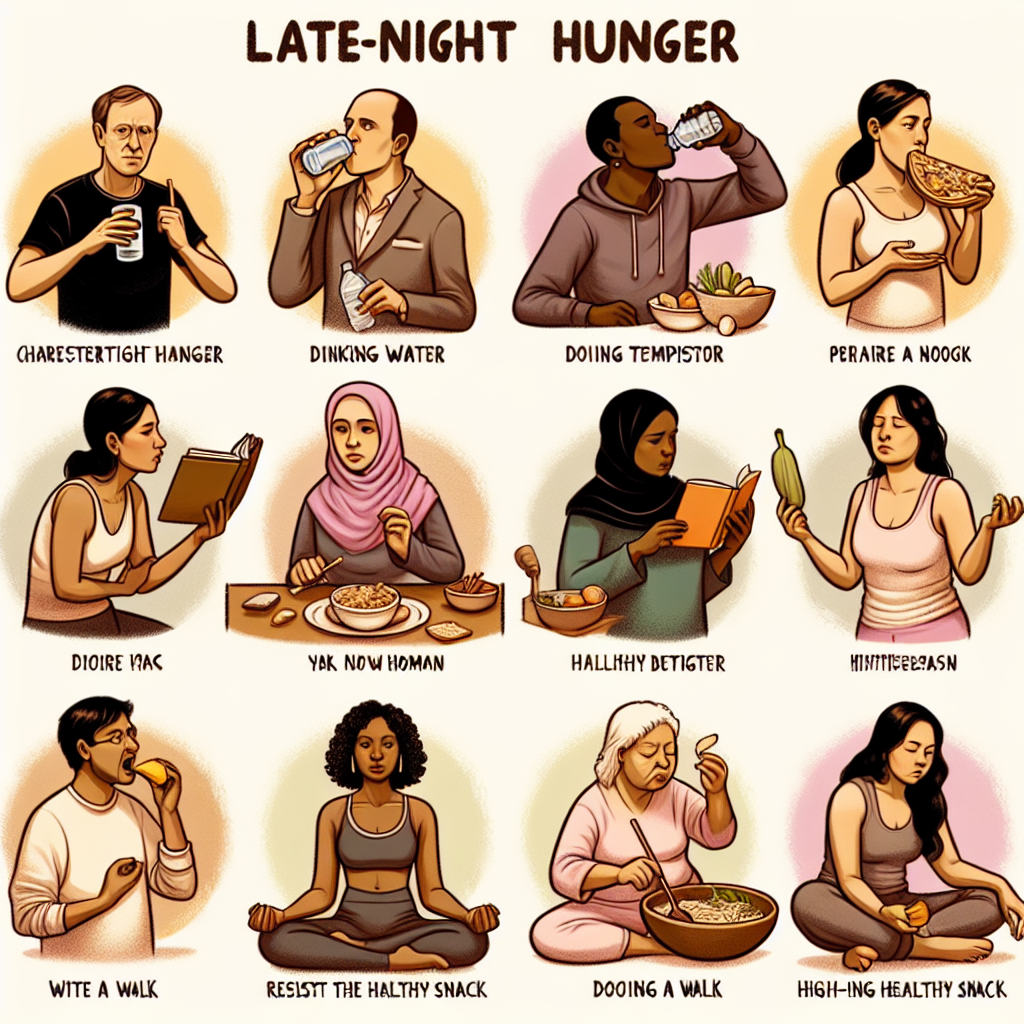7 Common Behaviors of People Who Experience Late-Night Hunger, According to Psychology
“`html
7 Common Behaviors of People Who Experience Late-Night Hunger, According to Psychology
Late-night hunger is a phenomenon that many people experience, often leading to midnight snacking or even full meals in the wee hours. While occasional late-night eating is normal, frequent occurrences can be linked to specific psychological behaviors and patterns. Understanding these behaviors can help individuals manage their eating habits more effectively. This article explores seven common behaviors associated with late-night hunger, backed by psychological insights.
1. Emotional Eating
Emotional eating is a behavior where individuals consume food in response to their feelings rather than hunger. According to a study published in the journal Appetite, people who experience late-night hunger often do so because they are trying to cope with emotions such as stress, anxiety, or sadness. The quiet of the night can amplify these feelings, leading individuals to seek comfort in food.
- Stress from work or personal life can trigger late-night cravings.
- Food is often used as a coping mechanism to deal with negative emotions.
2. Irregular Eating Patterns
People with irregular eating patterns are more likely to experience late-night hunger. Skipping meals or not consuming enough calories during the day can lead to increased hunger at night. A study in the Journal of Clinical Sleep Medicine found that irregular meal timing disrupts the body’s natural circadian rhythms, which can increase the likelihood of nighttime eating.
- Skipping breakfast or lunch can lead to increased hunger at night.
- Eating at inconsistent times confuses the body’s hunger signals.
3. Habitual Snacking
For some, late-night snacking becomes a habit rather than a response to hunger. This behavior is often reinforced by environmental cues, such as watching TV or working late. According to behavioral psychology, habits are formed through repeated actions, and breaking them requires conscious effort and awareness.
- Watching TV or using electronic devices can trigger snacking habits.
- Creating a routine that includes a healthy bedtime snack can help manage this behavior.
4. Sleep Deprivation
Sleep deprivation is closely linked to late-night hunger. Lack of sleep affects the hormones that regulate hunger, such as ghrelin and leptin. Research from the Sleep Foundation indicates that sleep-deprived individuals are more likely to crave high-calorie foods at night.
- Insufficient sleep increases ghrelin, the hormone that stimulates appetite.
- Leptin, the hormone that signals fullness, decreases with lack of sleep.
5. Night Eating Syndrome
Night Eating Syndrome (NES) is a condition characterized by excessive eating at night, often accompanied by insomnia. According to the International Journal of Eating Disorders, individuals with NES consume a significant portion of their daily calories after dinner and may wake up during the night to eat.
- NES is often linked to mood disorders and stress.
- Treatment may involve cognitive-behavioral therapy and lifestyle changes.
6. Social Influences
Social factors can also contribute to late-night hunger. Social gatherings, late-night work meetings, or living with others who have different eating schedules can influence one’s eating habits. A study in the Journal of Social and Clinical Psychology highlights how social environments can impact eating behaviors.
- Peer pressure or social norms can lead to late-night eating.
- Adjusting social activities to include healthier options can help.
7. Cravings for High-Calorie Foods
Late-night hunger often involves cravings for high-calorie, sugary, or fatty foods. These cravings can be driven by the body’s need for quick energy or as a reward mechanism. The Journal of Obesity notes that these cravings are often stronger at night due to lower self-control and decision-making abilities.
- High-calorie cravings are often linked to emotional and psychological factors.
- Mindful eating practices can help manage these cravings.
Conclusion
Understanding the psychological behaviors associated with late-night hunger can provide valuable insights into managing this common issue. By recognizing patterns such as emotional eating, irregular eating habits, and sleep deprivation, individuals can take proactive steps to address their late-night cravings. Whether through lifestyle changes, therapy, or mindful eating practices, managing late-night hunger is achievable with the right strategies. By addressing these behaviors, individuals can improve their overall health and well-being.
“`




